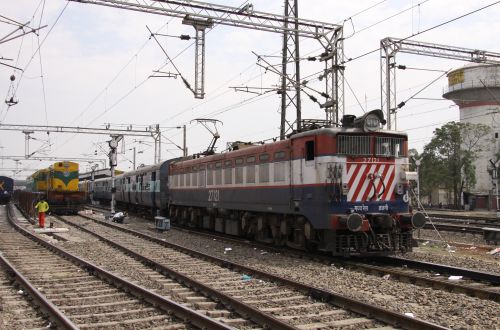Three of the projects involve constructing additional tracks on the Mumbai - Howrah corridor. A third track will be constructed on the 132km sectionbetween Kharagpur and Adityapur in Jharkhand, which according to the CCEA is currently operating at 122% of design capacity. In addition to heavy freight traffic, this line has to accommodate 36 passenger trains per day in each direction, including fast inter-city services such as the Bhubaneswar Rajdhani Express. The Rs 14.8bn project is due to be completed within four years and will provide capacity for 57 additional freight movements a day.
A third track will also be added to the 228.3km section between Rajnandgaon in Chhattisgarh and Nagpur in Maharashtra at a cost of Rs 21.9bn, while a fourth track will be built on the 206km Jharsuguda - Bilaspur stretch (Rs 23bn).
On the Delhi - Mumbai line, a third track will be constructed on the 426km section between Mathura in Uttar Pradesh and Bina in Madhya Pradesh. The Rs 66.5bn project is divided into two sections, with construction due to take four years and six years respectively.
In Andhra Pradesh, the CCEA has approved a six-year Rs 38.8bn project to build a third track on the 287.7km Vijaywada - Gudur line, a key north-south freight artery.
In Assam, a second track will be constructed on the Northern Frontier Railway’s 176km New Bongaigaon - Goalpara - Kamakhya line. The Rs 25.9bn project will take five years to complete.
Capacity on the saturated 201km Ballarshah - Kazipet section of the Delhi - Chennai line will be increased with the construction of third track. The Rs 24bn project will take five years to complete.
Finally, the 280km Itarsi - Nagpur line will be widened from two to three tracks to segregate passenger and freight traffic and improve reliability. The Rs 29bn project will be completed in five years.

